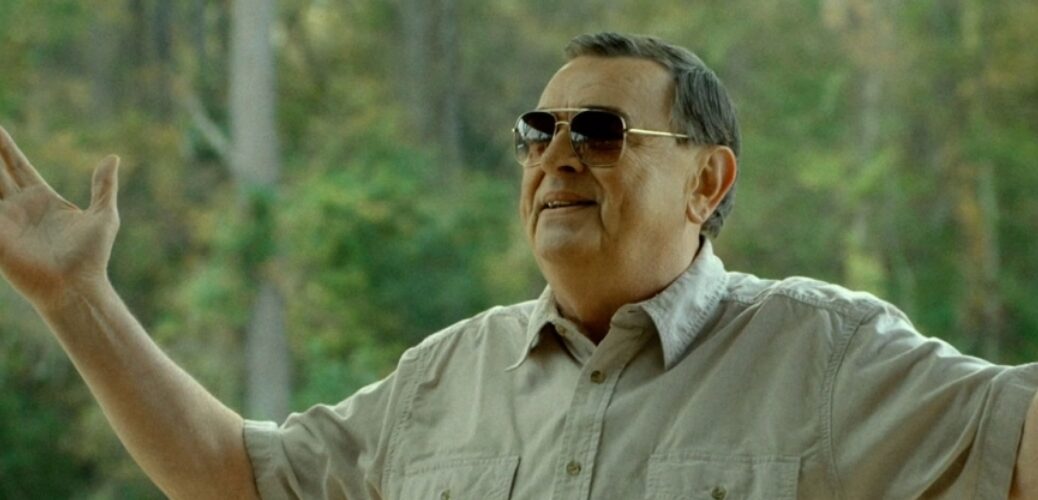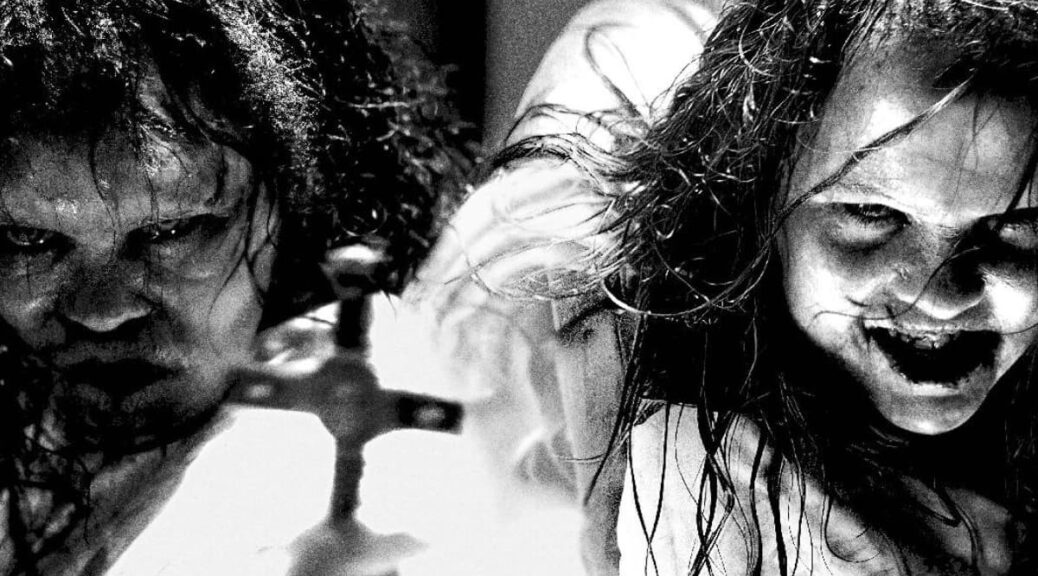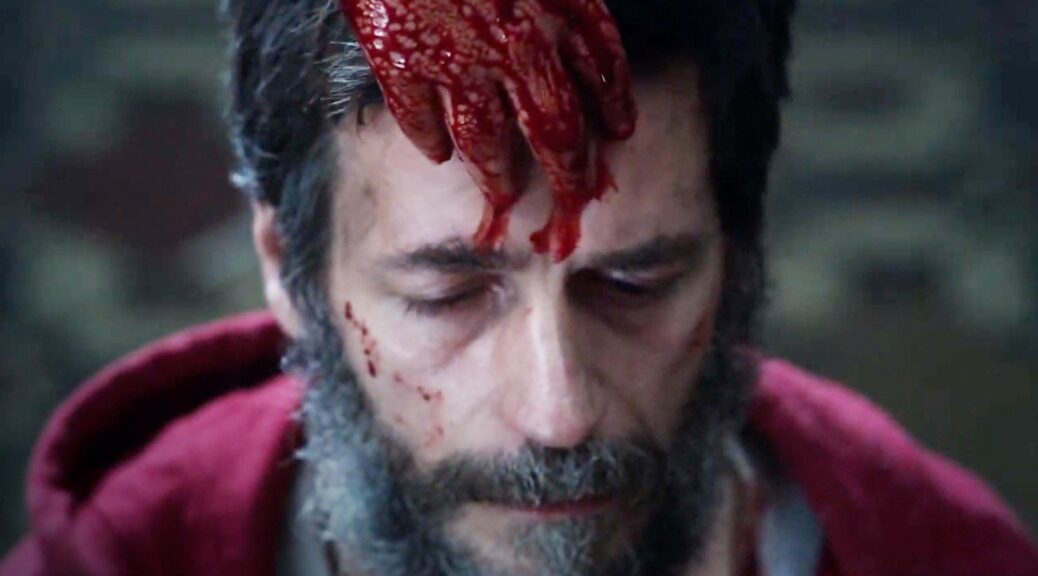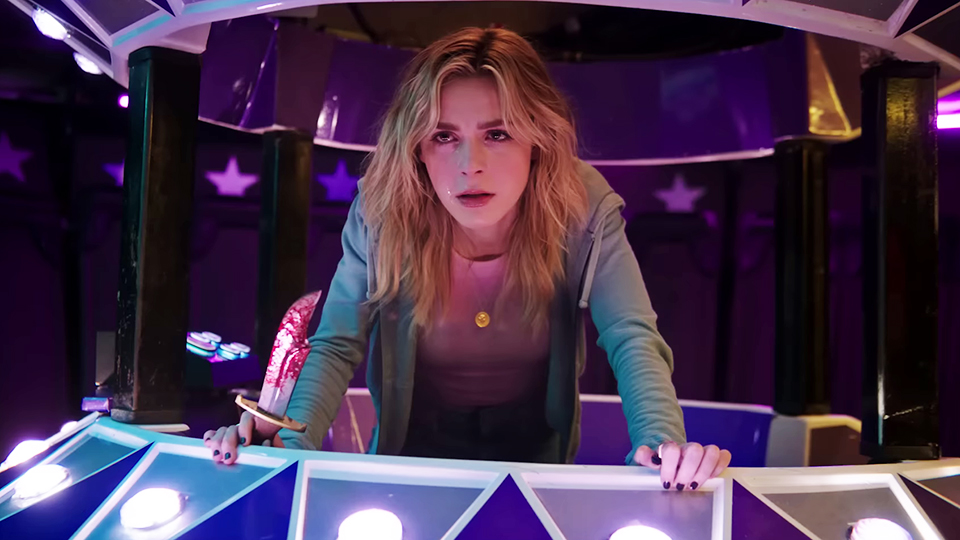What is it about one charismatic leader that can cause so much devastation? Horror filmmakers have long dug into the narcissism, vanity, and downright evil that lurks within these figures. Here are our five favorite films about a backwods Messiah.
5. The Sacrament (2014)
Ti West dives into Jim Jones territory in probably his most assured film prior to X. A cast of West regulars Joe Swanberg, AJ Bowen join the great Gene Jones for a tense news event.
West mines tensions, upends ideas of safety and power, but never dismisses the vulnerability that draws people toward charismatic figures like Father (Jones). It’s this openness that creates room for the real frights in the film.
4. Jug Face (2013)
Writer/director Chad Crawford Kinkle brings together a fine cast including The Woman’s Sean Bridgers and Lauren Ashley Carter, as well as genre favorite Larry Fessenden and late-life scream queen Sean Young to spin a backwoods yarn about incest, premonitions, kiln work, and a monster in a pit.
As a change of pace, Bridgers plays a wholly sympathetic character as Dawai, village simpleton and jug artist. On occasion, a spell comes over Dawai, and when he wakes, there’s a new jug on the kiln that bears the likeness of someone else in the village. That lucky soul must be fed to the monster in the pit so life can be as blessed and peaceful as before.
Kinkle mines for more than urban prejudice in his horror show about religious isolationists out in them woods. Young is particularly effective as an embittered wife, while Carter, playing a pregnant little sister trying to hide her bump, a jug, and an assortment of other secrets, steals the show.
3. Luz: The Flower of Evil (2019)
As colorful as a dream, Juan Diego Escobar Alzate’s feature film debut Luz: The Flower of Evil looks like magic and brims with the casual brutality of faith.
Set inside a religious community in the mountains of Colombia, the film drops us into ongoing struggles with the group’s religious leader, El Señor (Conrad Osorio). No one knows the devil as he does, he reminds his daughter Laila (Andrea Esquivel).
She lives contentedly, devoutly, along with her two adopted sisters. El Señor and the villagers consider the trio angels—just as they believe the little boy chained up out back is the Messiah who will deliver the community from its recent calamities.
2. The Other Lamb (2019)
The first step toward freedom is telling your own story.
Writer C.S. McMullen and director Malgorzata Szumowska tell this one really well. Between McMullen’s outrage and the macabre lyricism of Szumowska’s camera, The Other Lamb offers a dark, angry and satisfying coming-of-age tale.
Selah (Raffey Cassidy, Killing of a Sacred Deer, Vox Lux) has never known any life except that of Eden, the commune where she lives with the sisters, the wives, and the Sheperd (Michiel Huisman, The Invitation).
Szumowska doesn’t tell as much as she unveils: Selah’s defiant streak, Sheperd’s unspoken rules, what puberty can mean if you’re a good follower. She strings together a dreamlike series of visions that horrify on a primal level, the imagery giving the film the feel of gruesome poetry more than narrative.
The Other Lamb does not simply suggest you question authority. It demands that you do far more than that, and do it for your own good.
1. Martha Marcy May Marlene (2011)
Writer/director Sean Durkin took essentially the Charles Manson story, set it within modern privilege, and swapped the point of view to create an unnervingly realistic look at the reasons people find themselves drawn to cults.
And then, once we relate to Martha (Elizabeth Olsen), he sets the true terror in motion.
This film – through brilliantly written and beautifully directed – benefits from perhaps the best ensemble of 2011: Sarah Paulson, Christopher Abbott, Brady Corbet, Julia Garner, Hugh Dancy. But Olsen’s fearless, vulnerable turn as the woman who just doesn’t fit is only exceeded by the great John Hawes in the most mesmerizing, blistering turn of his magnificent career.












